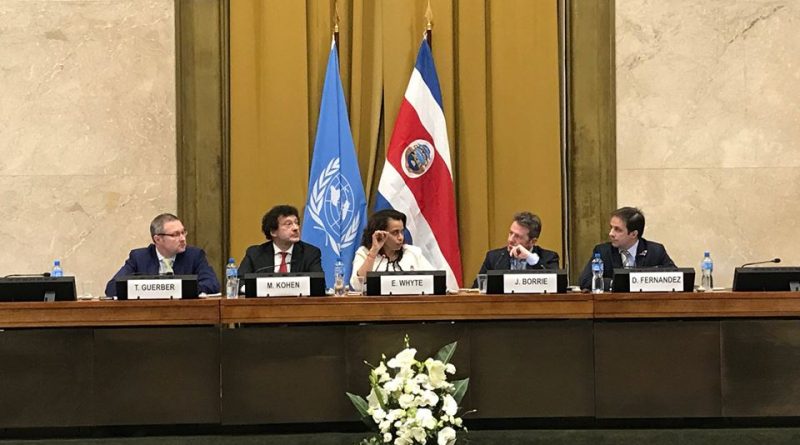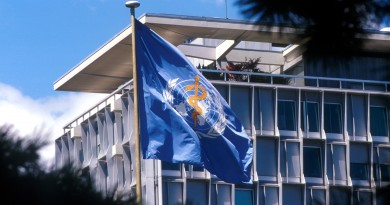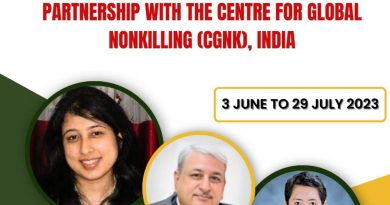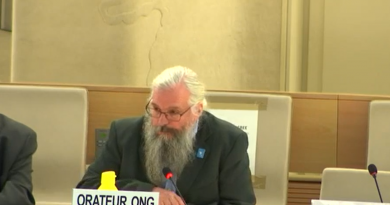70 Years Without An Army: Costa Rica Shows it Can Be Done
The Center for Global Nonkilling celebrates the anniversary of the abolition of the army in Costa Rica with speakers, diplomats and friends at the United Nations. On the 1st of December 1948, Costa Rica abolished its army. 70 Years later, Costa Rica fully considers how great this move was for the well-being of the people, for the development of peace and how it helped the Country become environmentally friendly. The Permanent Mission of Costa Rica to the United Nations Office, the University for Peace and the United Nations Institute for Disarmament Research organized an event in Geneva on 4 December 2018, in which CGNK’s Main Representative Christophe Barbey was present.
Her Excellency, Madame Elayne White, Ambassador of Costa Rica to the UN in Geneva (she also headed the negotiations on the nuclear weapons ban treaty) opened the celebration by recalling that there was an exceptional window of opportunity at the time for the abolition, but also great personalities present to make it possible and lasting through the constitution and through popular support because of the reallocation of the budget of the army to the people, to education and health. She said that in a civilization becoming more sophisticated, use of force was less accurate and added that Costa Rica had dared at the time to be different.
In his Keynote speech, Pr. Kohen from the Graduate Institute recalled that the borders in Latin America have been very stable, more than anywhere else in the world and that the use of peaceful means, as Costa Rica has demonstrated – he cited in detail numerous legal cases at the International court of Justice – are becoming more and more the norm and better, the practice.
Swiss Ambassador Guerber, who heads the Center for Democratic Control of Armed Forces (DCAF) in Geneva stated that having no army and showing it as being feasible has been a very interesting and new possibility for security sector reform. This statement came as a great surprise from a Swiss diplomat, a country where the abolition of the army has been a very delicate political issue in the last three decades.
Ambassador Puyana, representative of the UN University for Peace, located in Costa Rica, recalled that as stated in the UN charter § 27 money for development should also come from disarmament and that Costa Rica, disarmament achieved, thus brings a high a vision of peace. Similarly, Dr. John Borrie, chief of research at UNIDIR (United Nations Institute for Disarmament Research) and moderator of this session cited Costa Rica as being a beacon of hope for humanity.
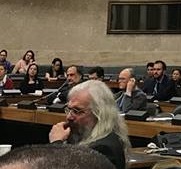
Christophe Barbey, CGNK’s main representative at the UN in Geneva, recalled the 1989 Swiss popular vote held to abolish the Swiss army (35.6% in favor) and that ever since he had been studying the 26 countries that where either born without giving themselves a military institution (19) or that underwent a complete demilitarization process (7), thus showing that demilitarization is difficult and that these windows of opportunity have been rare and must be used wisely when they appear. He also noted the fact that all existing demilitarization treaties seal down the surface where militarisation is possible and so forth that any successful demilitarization is a definite progress and a win against the risk of war. He also recalled that war is illegal (unless in self-defense) in the UN charter and that the progress of peace requires more fund, paying for peace to get peace. He concluded by congratulating Costa Rica for their great progress and endeavors towards a nonkilling world.
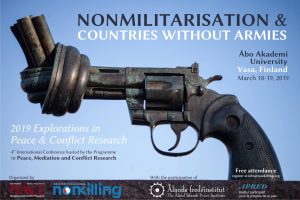
Christophe Barbey will be offering the Opening lecture at the “Nonmilitarisation and Countries Without Armies” Conference that will take place on March 18-19, 2019 at Åbo Akademi University in Vasa (Finland), home of the Programme in Peace, Mediation and Conflict Research. The event is the fourth edition of the international “Explorations in Peace & Conflict Research” conference, that on this occasion is organized with the collaboration of the Åland Islands Peace Institute (Ålands fredsinstitut) and the Swiss NGO APRED participative institute for the progress of peace. Admission is free, prior registration, which can be done sending an email to info [at] nonkilling [dot] org

